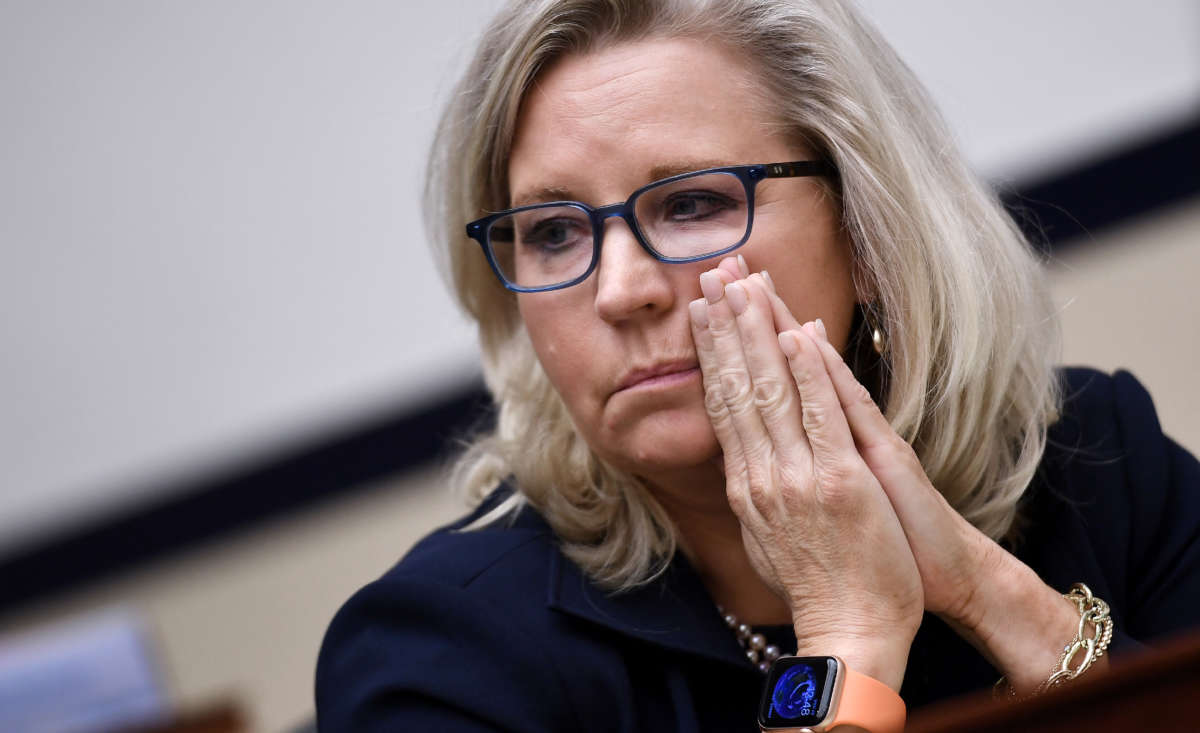On Tuesday, Rep. Liz Cheney (R-Wyoming), one of the vice chairs of the January 6 commission examining the attack on the U.S. Capitol building, announced that any former Trump aides refusing to comply with subpoenas from the commission should expect to face criminal charges from the Department of Justice (DOJ).
If witnesses subpoenaed by the select committee don’t appear for the closed-door testimonies scheduled for this week, as laid out in subpoena orders that were issued in September, they will face severe repercussions, Cheney explained to reporters.
“In general, people are going to have to appear, or, you know, we will move contempt charges against them,” Cheney said.
The Wyoming Republican noted that two of the four Trump aides — former chief of staff Mark Meadows and former Department of Defense official Kash Patel — were expected to give depositions later this week.
Cheney’s comments reveal a bipartisan consensus among the January 6 panel on consequences for subpoenaed individuals that don’t appear to testify, or who refuse to share documents related to the day of the attack.
“I think we are completely of one mind that if people refuse to respond to questions, refuse to produce documents without justification, that we will hold them in criminal contempt and refer them to the Justice Department,” said commission member Rep. Adam Schiff (D-California) in a CNN appearance on Tuesday.
Shortly after the subpoena orders were issued, Rep. Zoe Lofgren (D-California) warned of DOJ action toward non-compliant Trump aides.
“We want to give them the benefit of the doubt that they will respond as they should to this subpoena,” Lofgren said, adding that the commission was prepared to use “all of the available options” to respond to noncompliance, including criminal charges of contempt.
Steve Bannon, who briefly served as Trump’s chief strategist, has said he will not appear before the select committee. His announcement came after the former president ordered his aides not to testify.
Trump had also objected to his presidential records relating to January 6 being shared with the commission, explaining in a statement that his executive privilege allowed him to deny them the ability to see his communications and other records on and before that date.
The commission’s requests “are not based in law or reality — it’s just a game to these politicians,” Trump complained.
However, according to the provisions of the Presidential Records Act, the final decision-making power related to executive privilege rests with the current president. A former president may sue if they disagree with the current president’s decision, but in the past, courts have generally sided with parties seeking to make such information public record.
Late last week, the Biden administration announced that the president would not recognize Trump’s claims to executive privilege, and would allow his documents to be viewed by the January 6 commission.
Join us in defending the truth before it’s too late
The future of independent journalism is uncertain, and the consequences of losing it are too grave to ignore. To ensure Truthout remains safe, strong, and free, we need to raise $50,000 in the next 10 days. Every dollar raised goes directly toward the costs of producing news you can trust.
Please give what you can — because by supporting us with a tax-deductible donation, you’re not just preserving a source of news, you’re helping to safeguard what’s left of our democracy.
